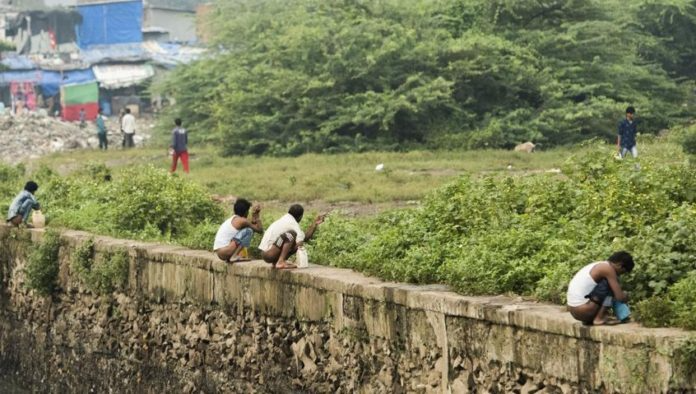To eliminate open defecation by 2030, Nigeria urgently needs to install 20 million new toilets, according to UNICEF’s Water, Sanitation, and Hygiene (WASH) Chief, Jane Bevan.
Speaking at a media dialogue in Lagos, Bevan emphasized that Nigeria’s battle against open defecation is a race against time, closely linked to the spread of Neglected Tropical Diseases (NTDs) and poor public health outcomes.
The two-day media event, organized in partnership with the Oyo State Rural Water Supply and Sanitation Agency (RUWASA), brought together key stakeholders from several southwestern states as well as representatives from the Federal Ministry of Health and private sector players.
The focus was on accelerating efforts to curb open defecation and address the health consequences associated with it.
Bevan underscored the dire need for political commitment and public engagement to drive a nationwide change in hygiene practices. “Open defecation poses significant health risks and we need strong political will to eradicate it,” she said. “We must prioritize sanitation and hygiene, and the media plays a critical role in raising awareness and changing behaviors.”
Highlighting the urgency of the issue, Chizoma Opara, Deputy Director of the ‘Clean Nigeria Campaign’ at the Federal Ministry of Water Resources and Sanitation, revealed that about 48 million Nigerians still engage in open defecation, according to the 2021 WASHNORM report.
The practice contributes to the spread of diseases like onchocerciasis, schistosomiasis, and trachoma, which are contracted through contact with contaminated soil and feces.
Opara noted that improved sanitation is crucial in breaking the cycle of disease transmission, especially among vulnerable populations such as children and women. “We are not just talking about installing toilets; we are talking about saving lives, improving public health, and promoting economic growth,” she added.
Despite some progress, there is still a long way to go. The 2021 report by the National Bureau of Statistics (NBS) shows that only 126 out of Nigeria’s 774 local government areas have been declared open defecation-free.
Jigawa is the only state to have fully achieved this status, while Katsina State has made strides with 27 out of its 34 local governments now open defecation-free.
The dialogue also explored collaborative strategies and highlighted success stories to inspire a nationwide push against open defecation.
The Chairman of RUWASA, Babalola Afobaje, commended UNICEF and the Oyo State government for their continued support in addressing open defecation, especially in rural communities. “Our goal is to use the WASH project to its fullest potential to ensure a healthier future for our communities,” Afobaje stated.


